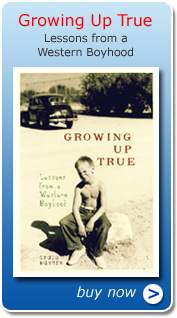Power in Afghanistan has now changed hands. We have exchanged one set of feudal warlords for another. "Feudal" means that many of them are like El Cid or Charlemagne, in the West 1,000 years ago. They are accustomed to the sword and to the slogan that might makes right. Heirarchy is everything. In one klan, according to published reports, a fifteen-year old boy controls 300 men and 3 tanks because his warlord father is dead and he is next in line. In our world, by contrast, we proclaim all men and women equal; nobody gets tanks because of his father's name. We are different.
Military action tends to eliminate or suppress difference. Our challenge today, globally, will be to learn to live with difference, to integrate it, to create a process by which people who are different may live side by side, in the Middle East, in Kashmir, in Afghanistan, and between us and them. Military action is a way to contain instant violence, a stopgap; but it is not sufficient for the long term. It does not provide a means for trade offs and compromise. Killing is clumsy, innocents get hurt and peacemaking requires more skill, more delicate and careful conversation.
Nor does great military power solve the problem of terrorists who can take over planes with box cutters and plastic knives. The theoretical foundation of America's defense for 50 years—since the end of World War II—was intercontinental ballistic missiles and the NATO alliance, the SEATO and ANZUS alliances, the doctrine of nuclear deterrence. All this theory and armament is largely useless to defend against enemies who may live next door. The star-wars missile defense system, all 80 billion dollars of it, is largely useless to prevail against enemies who may reside in Florida or Germany, in California or Canada. We used to identify the enemy by where they lived. Today they may live in our town. The military needs a front line; we have not a front line. We have no profile that puts into the same category both Timothy McVeigh and Osama bin Laden, but excludes you and me. Once we identified enemies because they looked different. Today, they look like us, because there is no one color or ethnic tradition to shape us. It is the dramatic change of the post-World War II world, that we have actually moved to a global civilization.
In a global civilization we are all going to live side by side for a long time and we have to take care of one another because it is hopeless and wrong to try to eliminate one another. The great American defense budget, billions and billions of dollars of it, spending at the rate of a million dollars a minute, has now become obsolete because it is less important than the civilian budget. We need to change "defense" into "offense" and now is the time to craft a new civilian offensive.
This country grew strong because of our protection of political minorities and the handicapped, our programs to treat mental illness and social security as much as because of our tanks and smart bombs. America grew strong because of our reliance upon all of our people, not just our elites. It is therefore to our civil strategies, our civil dialogue, our civil as opposed to military strength that America should now turn to find its long-run solutions for terrorism. We have done the easier part by dropping bombs. The harder part will now be to devise means that build a decent respect between former enemies.
